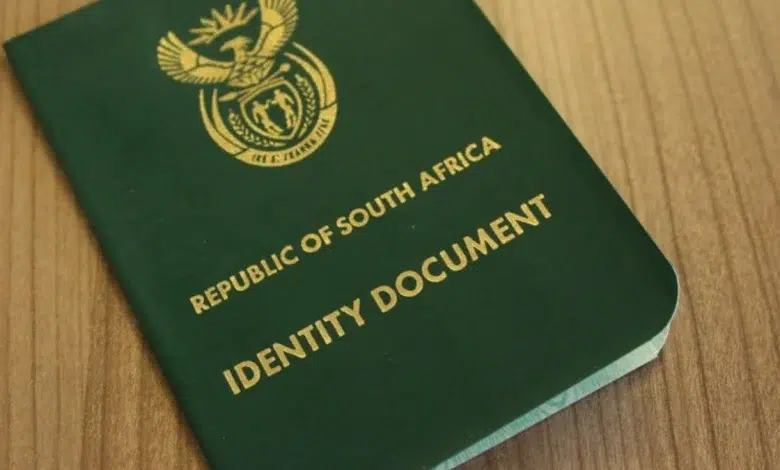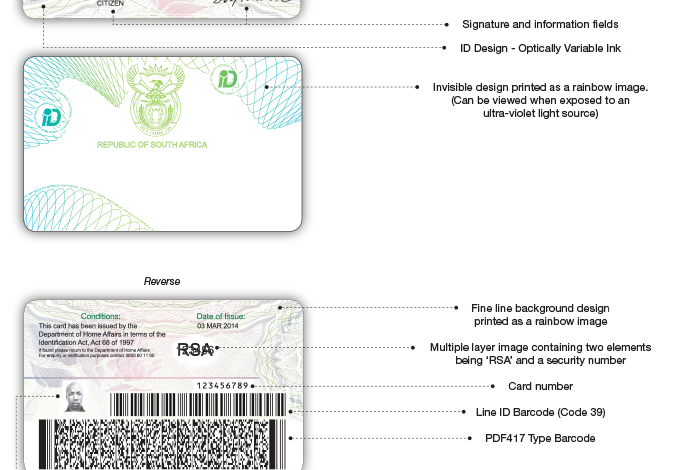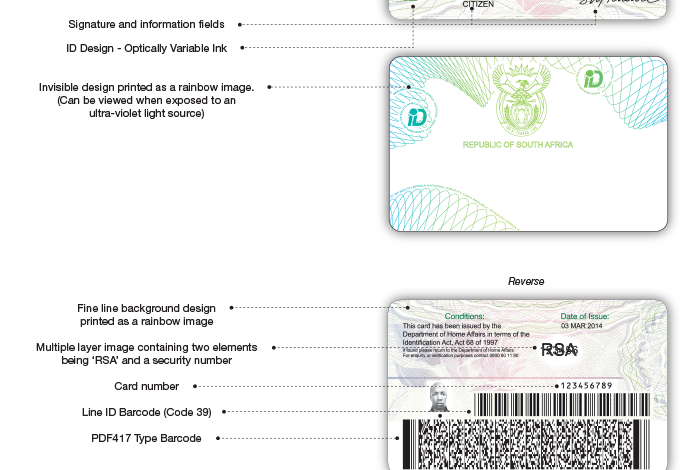Green ID Book to Smart ID Card: What You Need to Know About the New Process

Table of contents
- Background: The Green ID Book and Its Limitations
- What is the Smart ID Card?
- Key Features of the Smart ID Card
- Benefits of the Smart ID Card System
- The Phased Rollout: A Step-by-Step Approach
- Timeline for the Transition
- How to Apply for a Smart ID Card
- Where to Apply
- Required Documents
- Fees
- Current Status and Public Response
- Important Considerations
- Embracing the Future of Identification in South Africa
South Africa is gradually transferring from the traditional Green ID Book to a modern and secure Smart ID Card system. This transformation, led by the Department of Home Affairs, aims to reduce identity fraud, increase convenience, and embrace technology for improved service delivery. All South Africans aged 16 and older, along with permanent residents and naturalised citizens, need to understand the new process.
Need your Smart ID but weekdays too busy? Apply for Your Smart ID: Home Affairs Open on Saturdays Read on for what you need to know and how to get it done. Click to learn more!
Background: The Green ID Book and Its Limitations
For decades, the Green ID Book has served as South Africa’s official identity document for citizens and permanent residents. However, despite its historical significance, the Green ID Book has become vulnerable to fraud and identity theft due to its paper-based format.The Department of Home Affairs reports that the Green ID Book is one of the most defrauded identity documents in Africa.
Since identity documents underpin access to essential services such as banking, healthcare, and social grants, a secure system is necessary to protect citizens and residents.This recognition led to the development and phased introduction of the Smart ID Card; a technologically advanced identity document designed to address these challenges.
What is the Smart ID Card?
The Smart ID Card is a credit-card-sized, government-issued identity document embedded with secure digital features. Unlike the physical Green ID Book, the Smart ID Card includes enhanced security elements that make duplication or fraudulent activity considerably more difficult.
It contains cryptographically protected personal data stored on a chip, aligning with international best practices in identity management. This system decentralises data storage, keeping personal information safe both on the card and within government databases.
Key Features of the Smart ID Card
- Improved Security: Incorporates biometric and cryptographic protections to minimise fraud.
- Digital Readiness: Supports electronic verification for services requiring identification.
- Convenient Size: Easier to carry and use than an entire book.
- Widely Accessible: Issued and renewed at Home Affairs offices, bank branches, and online portals.
- Cost-Effective Process: Fee exemptions for senior citizens (aged 60+).

Benefits of the Smart ID Card System
The shift from physical booklets to a digital card system carries several advantages:
1. Enhanced Security and Fraud Prevention
The embedded cryptographic chip and biometric authentication significantly reduce the risk of document tampering or duplication.
2. Faster, More Convenient Service Delivery
By decentralising biometric capture to banks and additional sites, applicants can access services closer to home, reducing long queues at Home Affairs offices.
3. Facilitates Digital Services
Smart ID Cards enable streamlined access to government and private sector digital platforms, supporting e-government initiatives and modern service ecosystems.
4. Aligns with Global Standards
The new card meets international identification benchmarks, aiding South Africans travelling or conducting cross-border business.

The Phased Rollout: A Step-by-Step Approach
The Department of Home Affairs is implementing the Smart ID Card project in phases to manage the transition efficiently.
Phase 1: Initial Replacement
The first phase focuses on replacing Green ID Books held by naturalised citizens and permanent residents from visa-exempt countries. This group applies for Smart ID Cards through designated Live Capture Offices or participating bank branches.
Phase 2: Expanded Access
The second phase will allow a broader population scope, including first-time applicants and all other eligible South African citizens.
ALSO READ: Home Affairs Launches Digital ID Verification to Streamline Identity Checks
Timeline for the Transition
- End of 2025: The Department plans to stop issuing new Green ID Books.
- End of 2029: The Green ID Book will be completely phased out, with the Smart ID Card becoming the only valid identity document.
- March 2026: Expanded access is expected, with 100 bank branches set to provide Smart ID services.
- By 2028: Approximately 1,000 bank branches nationwide will offer biometric capture and issue Smart ID Cards.These milestones reflect a nationwide effort to make the process accessible and convenient for millions of South Africans.
How to Apply for a Smart ID Card
South African citizens aged 16 and above, as well as recognised permanent residents, can apply for a Smart ID Card once they’re eligible within the rollout phases.
Where to Apply
- Live Capture Offices: Select Department of Home Affairs offices equipped with biometric capture technology.
- Bank Branches: Hundreds of participating bank branches are now authorised to capture biometrics and process applications.
- eHomeAffairs Portal: An online platform where application appointments can be booked and certain services accessed. It offers pre-application options to reduce in-person wait times.
Required Documents
Applicants must bring original supporting documents such as:
- Birth certificate or previous ID document (Green ID Book)
- Proof of South African citizenship or permanent residency
- Proof of residence (where applicable)
Fees
The application fee for Smart ID Cards is R140. However, South Africans applying for their first identity document as well as senior citizens (aged 60 and older) are exempt from this fee.
RELEVANT ARTICLE: Get Your ID Delivered to Your Door: Home Affairs’ Game-Changing Digital Revolution
Current Status and Public Response
As of mid-2025, the Department of Home Affairs has increased office operating hours and expanded partnerships with banks to handle growing demand for Smart ID Cards. Public uptake has been positive, with many citizens embracing the convenience and security offered.
Challenges remain in rural areas and among marginalised groups; however, mobile capture units and outreach programmes aim to address these gaps.
Important Considerations
- The Green ID Book remains valid until officially phased out at the end of 2029.
- Smart ID Cardholders should safeguard their card due to its embedded personal data.
- Keep updated through official Department of Home Affairs announcements for local changes and appointment bookings.
Short on time? Apply for your Smart ID online via eHome Affairs. Fast, convenient, and done from home. Click to get started!
Embracing the Future of Identification in South Africa
The transition from the Green ID Book to the Smart ID Card represents a significant leap forward for identity security and accessibility in South Africa. By adopting modern technology, expanding access points, and planning a considered phase-out of outdated documents, the government is strengthening the integrity of the country’s identity system.
Citizens and permanent residents are encouraged to stay informed and begin the application process for their Smart ID Cards to enjoy the benefits of this secure and convenient identity solution.



